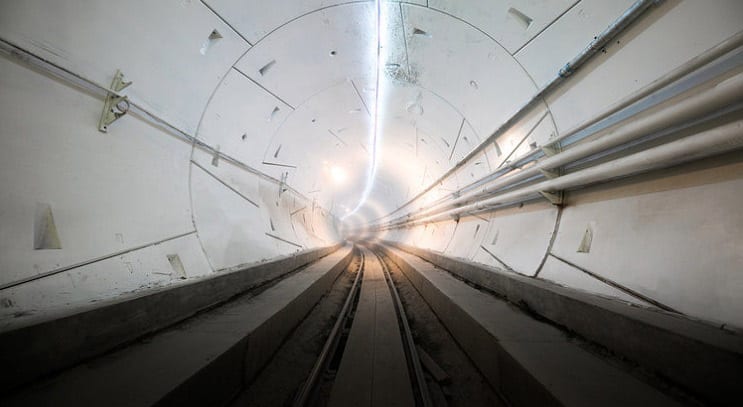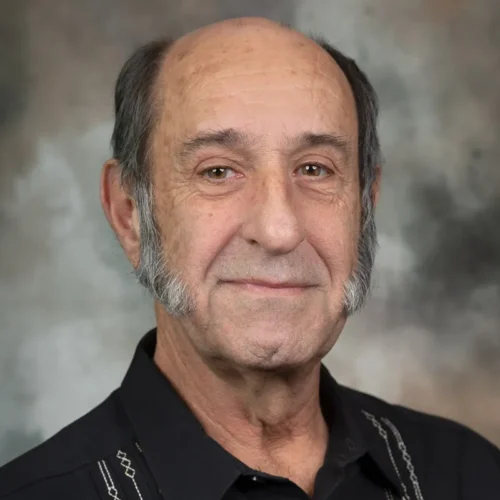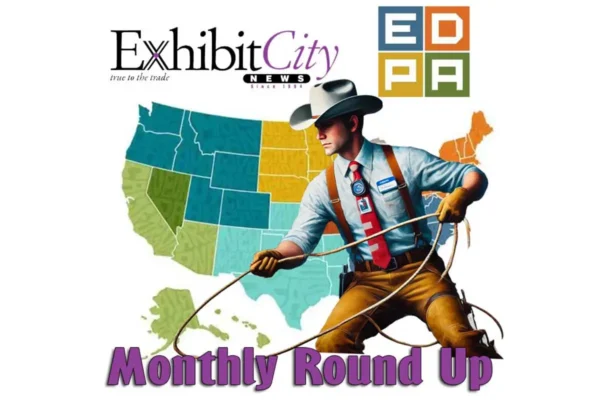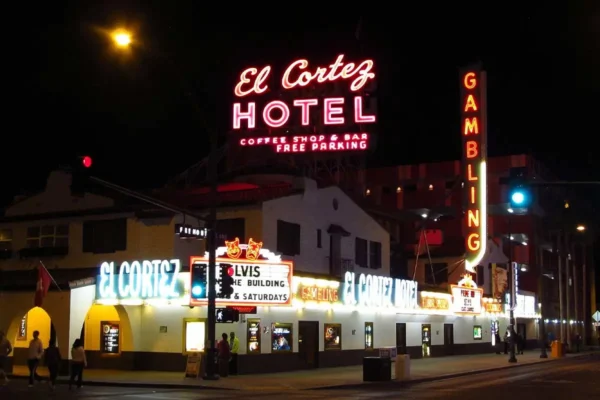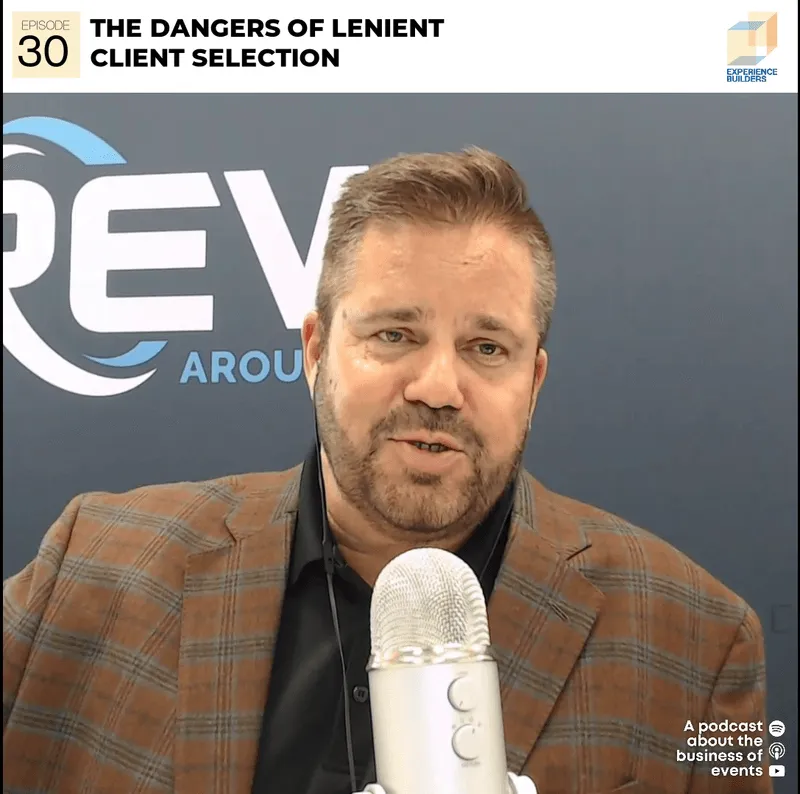By Ray Smith
ECN News Editor
It’s a frustrating traffic mess when more than 100,000 visitors jam the streets surrounding the Las Vegas Convention Center for shows such as CES, SEMA and MAGIC, prompting the board of directors to consider an underground transportation “loop” proposed by The Boring Company, a subsidiary of Tesla founder Elon Musk.
The Las Vegas Convention and Visitors Authority board voted 8-3 on March 12 to select The Boring Company to design, construct and operate the people-mover that would transport conventioneers through an underground loop of express-route tunnels.
Passengers would travel in autonomous electric vehicles that can carry up to 16 people. The loop could potentially connect with downtown Las Vegas, the Strip and McCarran International Airport.
The cost is estimated at $55 million, though no contract has been signed. Some board members raised concerns about the feasibility of the project, particularly regarding the hardened caliche rock lying under the soil in Las Vegas. The Boring Company has a research and development test tunnel in Hawthorne, California, that cost less than $10 million a mile, including internal tunnel infrastructure, the company reports.
“Las Vegas has maintained its reputation as a leading travel destination because we are driven by innovation and hospitality,” Steve Hill, president and chief executive officer of the authority, says in a website statement. “This is an example of how our leading principles can create an experience benefiting our community and valued visitors.”
Las Vegas Convention Center is currently adding 1.4 million square feet and expanding to 200 acres when the Consumer Electronics Show comes to town in 2021, though 10 acres at the former site of the Riviera Hotel have been listed for sale.
Conventioneers can wear themselves out – along with a pair of shoes – walking the expansive facility.
That’s why Las Vegas Convention Center, which brings more than 1 million convention attendees a year, needs an improved transportation system, says Steve Davis, president of The Boring Company.
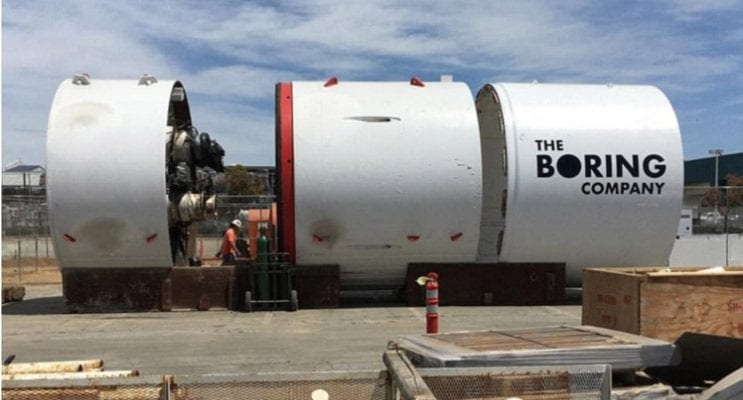
Las Vegas attracts about 42 million visitors a year, and about 12 million take public transportation along the resort corridor.
“Las Vegas is a high-energy, high-technology destination equipped to welcome the world, are we are excited to deliver a system that will help visitors efficiently navigate the city’s many offerings,” Davis says in a statement.
The board’s recommendation is a result of a process that started in 2018 with a request to gauge interest in the proposal. Interviews were conducted with selected finalists, and an evaluation team will come back with specific plans and negotiate a contract for final approval by the LVCVA board at its June meeting.
The loop will be designed to meet the full spectrum of ridership needs, including future expansion, with potential capacity of up to 11,000 passengers an hour, according to the LVCVA.
“Las Vegas is on the cutting edge of technology and this project reflects the incredible work that’s taking shape right here in Southern Nevada,” LVCVA Chairman and Clark County Commissioner Larry Brown says. “It’s exciting to have the Las Vegas Convention center campus at the forefront of this historic development in our destination and we look forward to his new mass-transit solution with The Boring Company.”
Las Vegas Convention Center hosts 21 percent of convention attendees in Las Vegas, directly supporting about 8,600 jobs paying $375 million in wages, the LVCVA reports.
Records search
The Las Vegas Convention and Visitors Center is under investigation for misuse of public funds, specifically gift cards purchased by the tourism agency from Southwest Airlines that were allegedly used by executives for trips not related to business.
Detectives from Las Vegas Metro Police Department showed up at LVCVA offices on March 27 with a search warrant to copy electronic records and emails related to the use of airline gift cards over the past seven years, according to the Las Vegas Review-Journal.
“We are cooperating with all LVMPD requests,” LVCVA President and Chief Executive Officer Steve Hill says in a statement. “We look forward to a swift resolution of this matter, so that we can continue to focus on our mission of bringing millions of visitors annually to our destination.”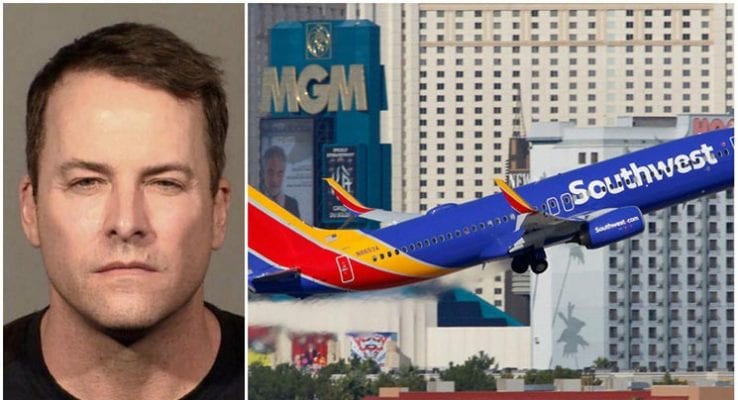
Brig Lawson (pictured right), former director of business development for LVCVA, was arrested following the search and was released on $10,000 bond. The audit showed Lawson bought $90,000 in Southwest Airlines gift cards from 2012 to 2017, but $50,000 in cards were unaccountable.
Detectives first raided the agency’s offices in June 2018 and recovered records showing that staff took personal trips using the Southwest Airlines gift cards. An audit of the records found $50,000 in missing gift cards, the newspaper reported.
Former CEO Rossi Ralenkotter, who retired in August, admitted using $17,000 in airline gift cards for personal travel. He apologized publicly and reimbursed the agency.
Land for sale
The Las Vegas Convention and Visitors Authority has put 10 acres up for sale on the Strip at the site of the former Riviera Hotel, the Las Vegas Review-Journal reported.
Commercial brokerage firm CBRE Group has been retained to sell the land and has not disclosed the asking price.
LVCVA Chief Executive Officer Steve Hill says it may turn out to be the most expensive piece of government-owned land ever sold in Las Vegas. The land would “provide exceptional opportunity for the right visionary,” he says in a news release.
The tourism agency purchased the 26-acre Riviera site in 2015 for $182.5 million with plans to expand Las Vegas Convention Center.
The convention center is currently in the second phase of expansion, slated to add 1.4 million square feet by 2021, including 600,000 square feet of new, leasable exhibit space.






